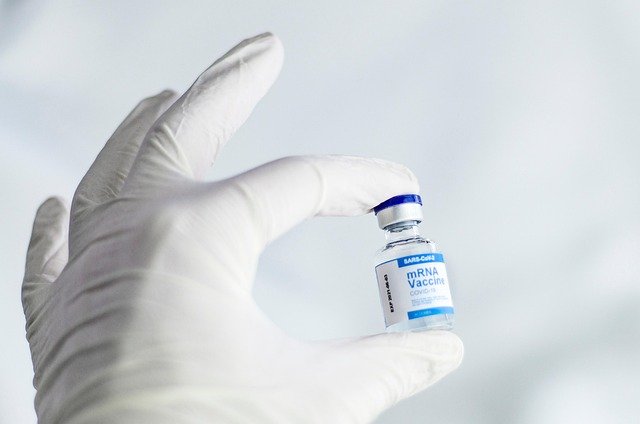Understanding IVF Treatment: A Comprehensive Guide for Women's Health
In vitro fertilization (IVF) is a medical process where eggs are fertilized outside the body and later transferred to the uterus. It is often used when other fertility treatments are unsuccessful. The procedure involves multiple stages, including medication, retrieval, and transfer.

What Is IVF Treatment and How Does It Work?
IVF treatment is a multi-step process designed to assist with fertility by bypassing certain reproductive problems. The procedure begins with ovarian stimulation using hormonal medications that encourage the ovaries to produce multiple eggs instead of the single egg typically released during a normal menstrual cycle. Once the eggs reach maturity, they are retrieved through a minor surgical procedure under sedation or light anesthesia.
In the laboratory, the collected eggs are combined with sperm (either from a partner or donor) for fertilization. The fertilized eggs develop into embryos over several days. The healthiest embryos are then selected for transfer into the uterus, where implantation may occur, leading to pregnancy. Any additional viable embryos can be frozen for potential future use.
The entire IVF cycle typically takes about two to three weeks, though the timeline can vary based on individual protocols and responses to treatment. Success rates depend on various factors including age, underlying fertility issues, and the clinic’s expertise.
Who Should Consider IVF and When?
IVF may be recommended for women experiencing various fertility challenges. Common indications include blocked or damaged fallopian tubes, endometriosis, decreased ovarian function, unexplained infertility, and issues with male factor infertility such as low sperm count or motility problems. Women who have experienced recurring pregnancy loss or those with genetic disorders they wish to avoid passing to their children may also consider IVF with preimplantation genetic testing.
Age is a significant factor in fertility treatment decisions. Women under 35 years old generally experience higher success rates with IVF, while those over 40 may face increased challenges. Many fertility specialists suggest considering IVF after trying to conceive naturally for one year if you’re under 35, or after six months if you’re over 35.
Some women may be advised to pursue IVF earlier based on specific diagnoses, such as severe endometriosis, significantly diminished ovarian reserve, or when both fallopian tubes are blocked. The decision should always be made in consultation with a reproductive endocrinologist who can evaluate individual circumstances.
What to Expect During an IVF Treatment Cycle
An IVF treatment cycle involves several distinct phases, each requiring specific medications, procedures, and monitoring. The process begins with preparatory tests including hormone level assessments, ultrasounds, and infectious disease screenings. Once cleared to begin, you’ll start ovarian stimulation medications, typically self-administered as injections for 8-12 days.
Throughout stimulation, frequent monitoring through blood tests and ultrasounds helps physicians track follicle development and adjust medication dosages accordingly. When the follicles reach optimal size, a trigger injection prepares the eggs for retrieval, which occurs approximately 36 hours later.
The egg retrieval procedure takes about 20-30 minutes under sedation. Following retrieval, fertilization occurs in the laboratory, and embryos are cultured for 3-5 days. The embryo transfer procedure is relatively quick and typically painless, requiring no anesthesia. After transfer, progesterone supplements support the uterine lining until a pregnancy test is conducted about two weeks later.
Throughout this process, patients often experience emotional fluctuations and physical discomfort from medications and procedures. Many clinics offer counseling services and support groups to help patients navigate these challenges.
IVF Success Rates and Factors Affecting Outcomes
IVF success rates vary considerably based on numerous factors, with maternal age being the most significant determinant. According to national statistics, women under 35 have approximately 40-50% chance of live birth per IVF cycle, while those over 42 may have less than 10% chance. Other factors influencing success include:
-
Ovarian reserve and egg quality
-
Sperm quality and quantity
-
The specific cause of infertility
-
The number of previous IVF attempts
-
The quality of embryos created
-
The presence of uterine abnormalities
-
The expertise and laboratory quality of the fertility clinic
It’s important to understand that IVF often requires multiple cycles to achieve success. Many fertility specialists recommend planning for 2-3 cycles when considering the emotional and financial investment in treatment. Technological advances like preimplantation genetic testing and improvements in laboratory techniques have helped improve success rates in recent years.
Understanding IVF Treatment Costs and Insurance Coverage
IVF treatment represents a significant financial investment for most patients. The cost of a single IVF cycle in the United States typically ranges from $12,000 to $25,000, including medications. This variation depends on geographic location, clinic fees, specific protocols required, and whether additional services like genetic testing are included.
| Treatment Component | Typical Cost Range |
|---|---|
| Initial consultation | $300-$500 |
| Pre-IVF testing | $1,500-$3,000 |
| Medication costs | $3,000-$7,000 |
| Egg retrieval procedure | $3,000-$5,000 |
| Laboratory fees (fertilization and embryo culture) | $3,000-$5,000 |
| Embryo transfer | $1,500-$3,000 |
| Additional procedures (ICSI, assisted hatching, etc.) | $1,000-$2,500 each |
| Embryo freezing and storage | $500-$1,000 annually |
Prices, rates, or cost estimates mentioned in this article are based on the latest available information but may change over time. Independent research is advised before making financial decisions.
Insurance coverage for IVF varies widely by state and policy. Currently, only about 20 states have laws requiring insurers to either cover or offer coverage for fertility treatments, and the extent of coverage differs significantly. Patients should thoroughly investigate their insurance benefits before beginning treatment. Many fertility clinics offer financial counseling and payment plans, and some pharmaceutical companies provide medication discount programs for eligible patients.
Navigating Emotional and Physical Challenges of IVF
The IVF journey involves significant emotional and physical demands. Hormonal medications can cause mood swings, bloating, headaches, and in rare cases, ovarian hyperstimulation syndrome (OHSS). The procedures themselves may cause discomfort, and the two-week waiting period between embryo transfer and pregnancy testing is often described as emotionally challenging.
Many patients experience feelings of grief, anxiety, depression, and isolation during fertility treatment. Building a support system is essential, whether through friends and family, professional counseling, or support groups specifically for those undergoing fertility treatments. Most reputable fertility clinics offer psychological support services or can provide referrals to mental health professionals specializing in reproductive issues.
Self-care practices such as gentle exercise, adequate sleep, proper nutrition, and stress-reduction techniques can help manage the physical and emotional toll of treatment. Many patients find that setting realistic expectations and developing coping strategies before beginning IVF helps them navigate the process more effectively.
This article is for informational purposes only and should not be considered medical advice. Please consult a qualified healthcare professional for personalized guidance and treatment.




